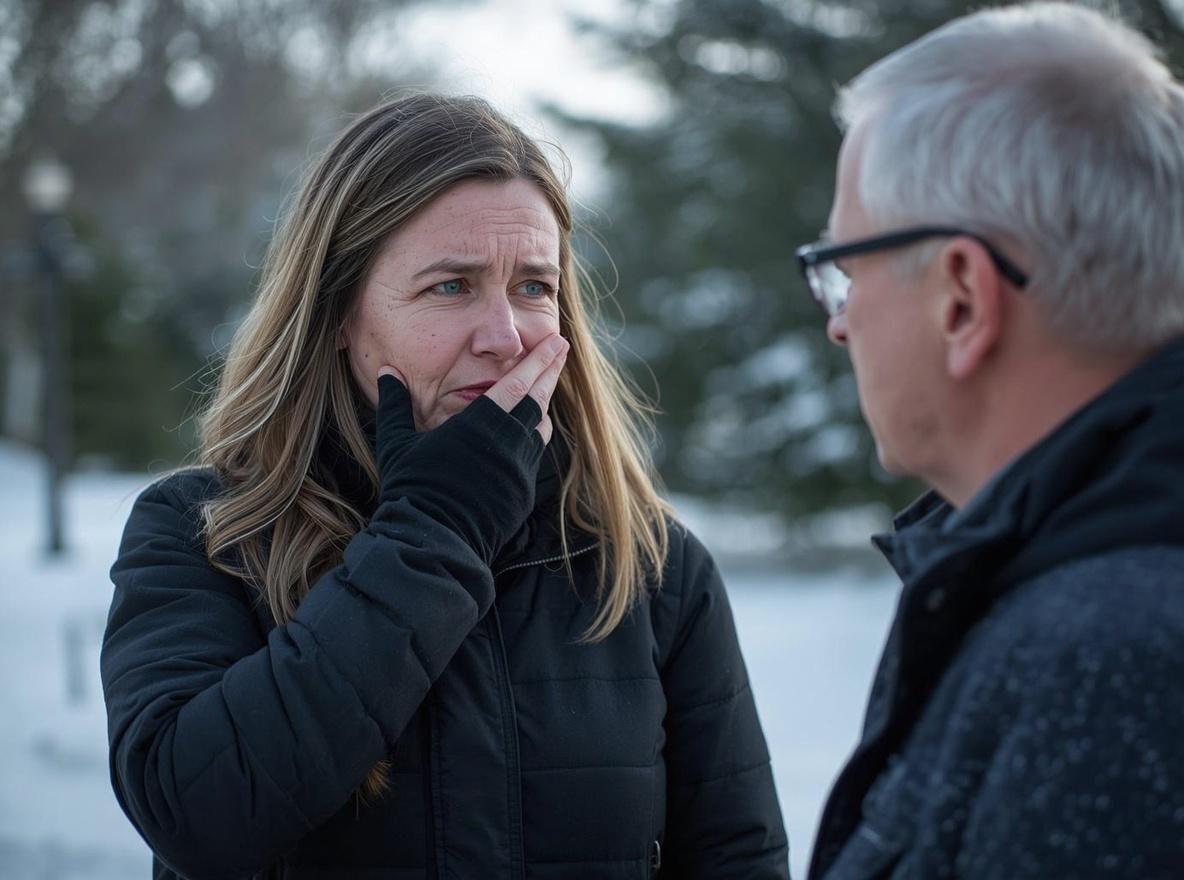L-Lysine for Cold Sores – Soothe Winter Flare-Ups and Cracked Lips

Cold sores have a habit of showing up when the weather turns cold and dry. Winter air pulls moisture from the lips, indoor heating lowers humidity, and chapping or tiny cracks along the lip line can make everything feel worse. If you’re prone to that familiar tingle, a simple routine can help calm irritation, protect the area, and support a smoother return to normal. Basic Health Brands® L-Lysine Ointment was designed with exactly this in mind. It pairs L-lysine with skin conditioners and protectants to keep lips cushioned and comfortable through flare-ups and dry, windy days.
Below, you’ll find what drives winter outbreaks, how L-lysine fits into a practical cold sore plan, and how the full ingredient blend in this ointment helps soothe and protect irritated lips plus clear steps for using it.
Why winter can trigger more cold sores
Cold sores are caused by HSV-1, a virus that can lie dormant and “wake up” with common triggers like stress, being run-down, UV and wind exposure, or irritation around the lips. Winter stacks several of those at once: cold wind outside, dry heated air inside, and more seasonal colds. Together, they make the lip border more fragile and more likely to feel that first tingle. Your winter strategy: cushion the lip barrier, lower irritation, and avoid habits that spread the virus or prolong the episode.
Where L-lysine fits into cold sore care
L-lysine is an essential amino acid many people include in their cold sore routine. In practical terms:
-
Support over time: People who are prone to outbreaks often use lysine as part of their ongoing plan because they feel it helps them stay on top of flare-ups.
-
Topical comfort at the first sign: A lysine-containing ointment can be used right when you notice tingling or dryness along the lip line. While no topical product can “switch off” a virus, keeping the area protected and comfortable is a meaningful step while your skin settles down.
-
Set realistic expectations: There isn’t a one-and-done cure for cold sores. The goal is to shorten the uncomfortable window, protect fragile skin, and get back to normal lip comfort with fewer disruptions to your day.
Why a multi-ingredient ointment is so helpful in winter
Occlusive protectants to shield the lip barrier
Petrolatum, lanolin, cocoa butter, and wax create a soft, breathable seal that locks in moisture and reduces water loss. When lips stay cushioned and flexible, they’re less likely to split or crack which is especially important during an active cold sore when the area feels tight or itchy.
Soothing agents for quick comfort
Menthol and camphor provide a brief cooling sensation that takes the edge off stinging and itching. When the area feels calmer, it’s easier to avoid touching or picking, which supports a cleaner healing environment.
Conditioning vitamins for stressed winter lips
Vitamins A, D, and E are classic skin conditioners. They help the surface feel soft and supple while the protective base does the heavy lifting on moisture retention. If your lips are already wind-chapped, this combination can feel noticeably more comfortable.
A light protective film
Tincture of benzoin contributes a thin, protective film that helps shield delicate skin from friction and the elements along the lip border. If you have very sensitive skin, patch-test first and discontinue if irritation occurs.
How to use L-lysine ointment for cold sores and cracked winter lips
At the first tingle
-
Gently cleanse and dry the area.
-
Apply a thin layer of ointment to the tingling spot and just beyond the border.
-
Reapply as needed to maintain a soft, protective layer.
During an active blister
-
Keep using thin layers several times per day for comfort and cushioning.
-
Avoid picking or peeling scabs; disturbing the surface can prolong irritation.
-
Wash hands before and after application, and avoid sharing lip products, towels, or utensils until fully healed.
For everyday winter lip care
-
Use a thin layer as an overnight lip mask if your lips get very dry.
-
Before heading into wind or cold, apply a little to reduce moisture loss.
-
During the day, pair with an SPF lip balm—UV exposure can be a trigger for some people even in winter.
Makeup tip
If you want coverage, apply a very thin layer of ointment, give it a minute to set, then dab a creamy, hydrating concealer around (not directly on) the active area. Skip matte or long-wear lip products until things calm down.
Simple habits that help all winter
-
Hydrate and humidify: Dry indoor air pulls moisture from lips. Sip water and consider a bedside humidifier for nighttime comfort.
-
Hands off: A soothing layer plus a no-picking habit reduces irritation and contamination.
-
Lower common triggers: Prioritize sleep, manage stress where you can, and protect lips from sun and wind—especially on bright, cold days.
When to check in with a clinician
Reach out to a healthcare professional if cold sores are very frequent or severe, if a lesion doesn’t improve within about two weeks, if irritation spreads beyond the lip area, or if you have questions about using any product on broken skin. Individuals with specific medical conditions, those who are pregnant or nursing, or anyone using prescription antivirals should ask a clinician for personalized advice.
The bottom line
Winter is tough on lips, but a simple plan helps: protect the lip barrier, soothe discomfort, and keep things clean and hands-off while your skin recovers. Basic Health Brands® L-Lysine Ointment brings together lysine, conditioning vitamins, and proven moisture-locking protectants so you can feel better and get back to your day—without letting cold sores or cracked lips steal the season.
Content is for informational purposes only and does not replace professional medical advice. Always follow label directions and consult a healthcare professional with questions about cold sore management.

